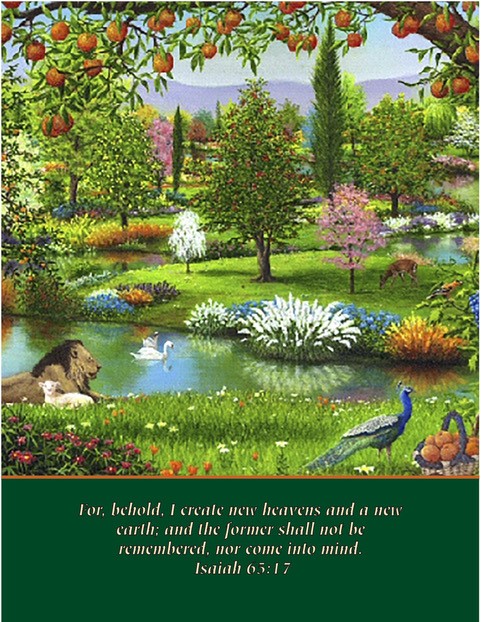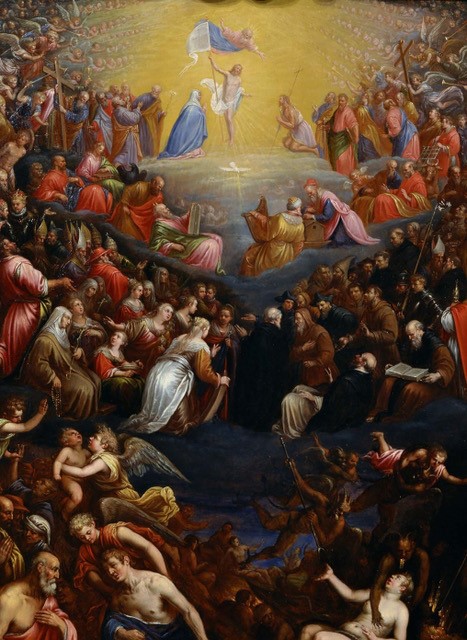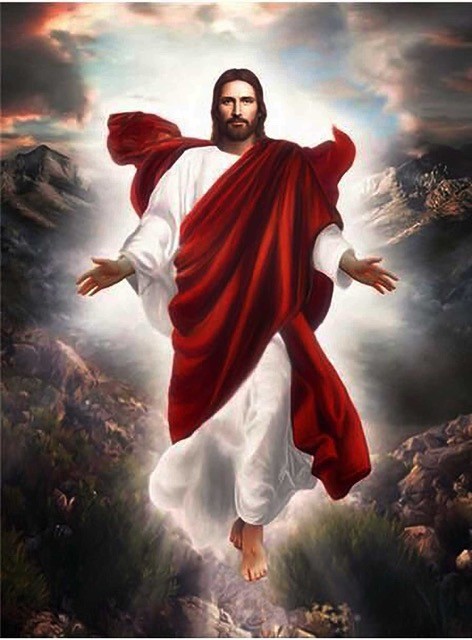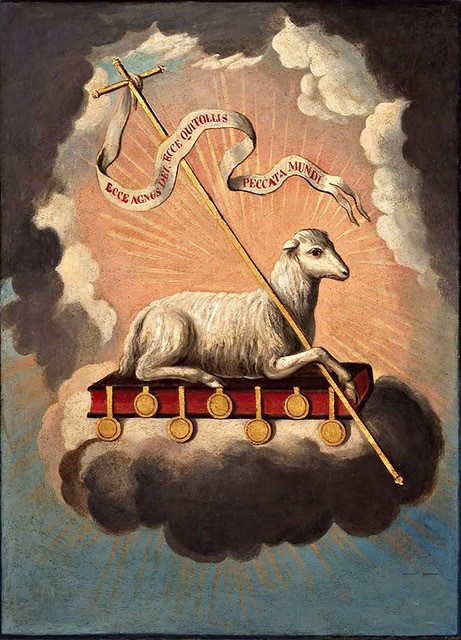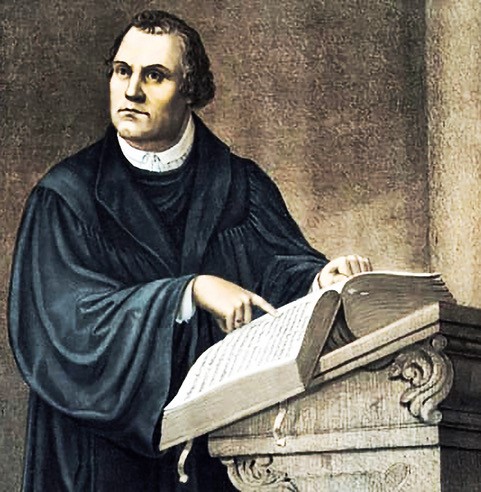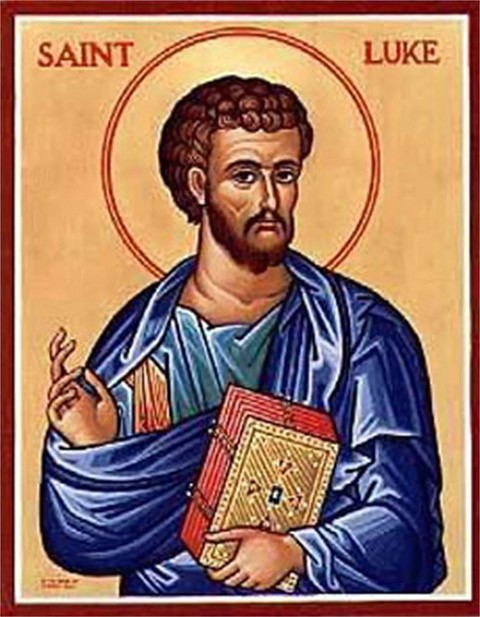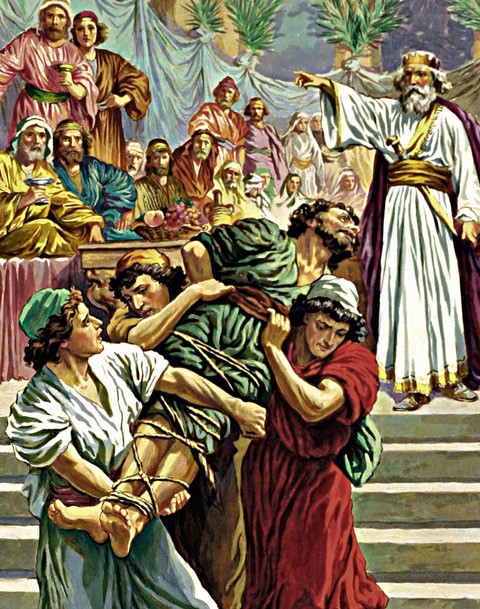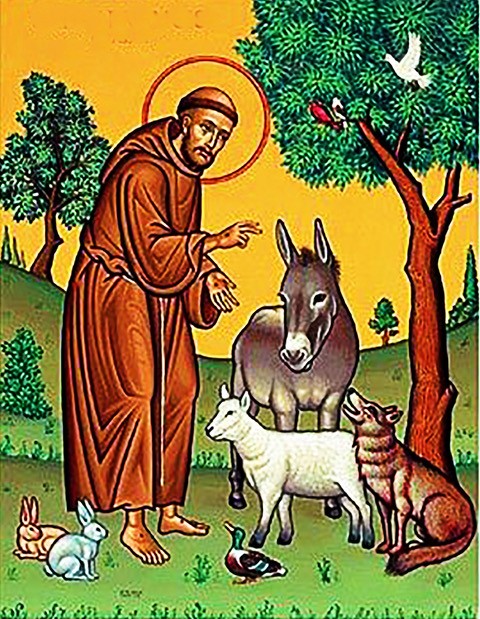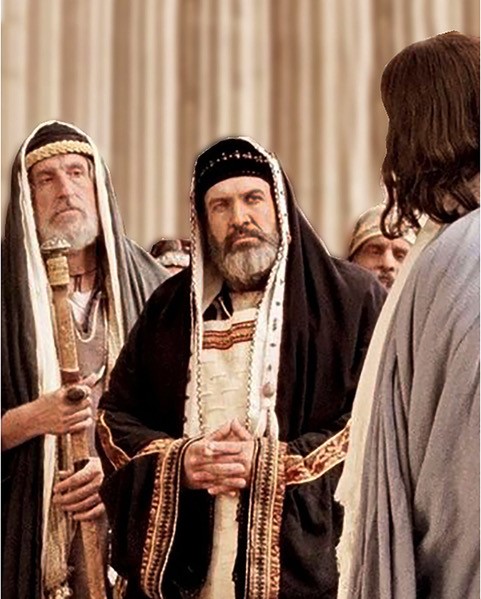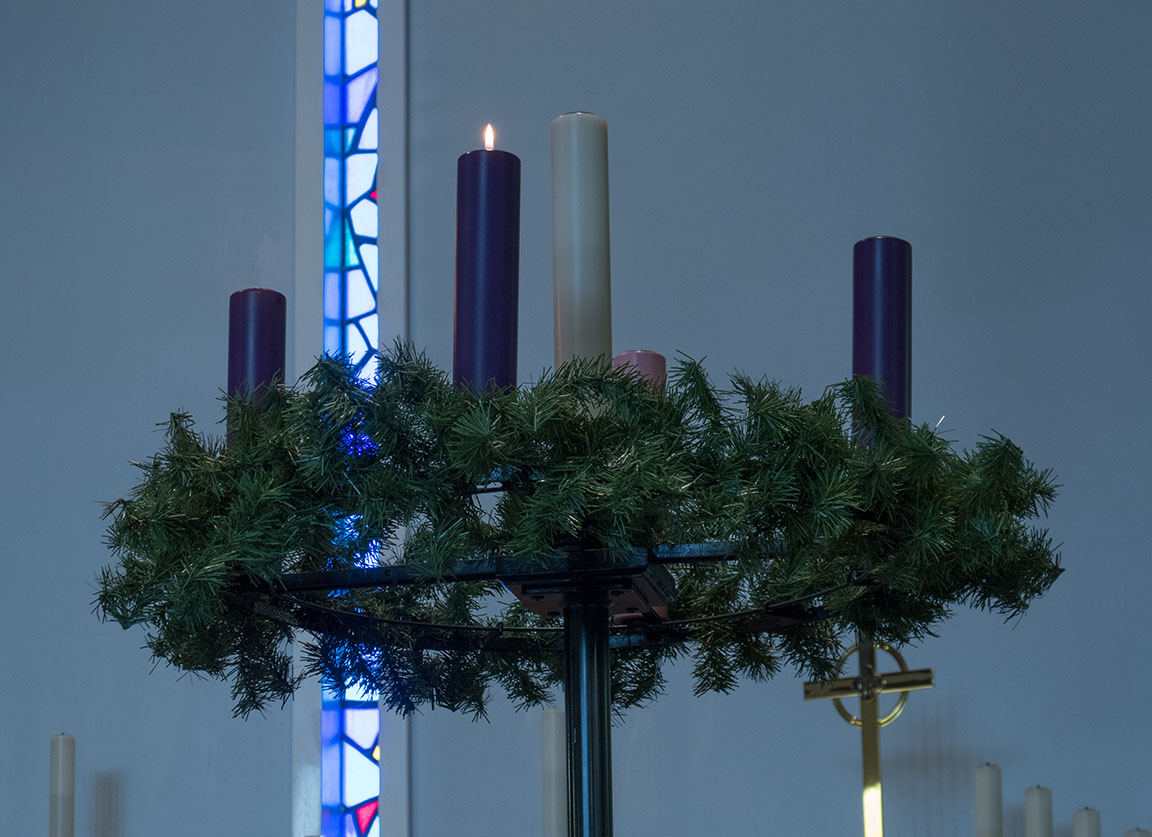
First Week of Advent
Notes
The Lord be with you!
To you, O LORD, I lift up my soul. O my God, in you I trust; let me not be put to shame. This is the first Sunday in our new Church year, the first Sunday in Advent. Our lectionary, or readings schedule, sometimes includes special names for certain Sundays. These names often come from the Introit’s opening words. There are parts of the liturgy that remain the same from week to week: Lord, Have Mercy; the Creed; Holy, Holy, Holy are consistent. The Introit and Scripture readings, of course, change each Sunday and give us a theme of the day for us as we hear the sermon to focus on the gifts of our Lord for us. This Sunday’s name is Ad Te Levavi, or To You I lift up, which is the Introit, the opening words unique to this day. As we enter into His presence, we lift up our souls in prayer to Jesus Christ our King who has desired to come in lowliness while at the same time He stirs up His almighty power.
Let us pray:
Stir up Your power, O Lord, and come, that by Your protection we may be rescued from the threatening perils of our sins and saved by Your mighty deliverance; for You live and reign with the Father and the Holy Spirit, one God, now and forever. Amen.
Jeremiah 23:5–8
Jesus was prophesied as the righteous Branch from the kingly tree of David, the true wise ruler greater than Solomon. These several names tell us that He alone can preserve and protect His kingdom, the holy Christian Church. His name is important to remember, because in the Bible, the name is more than a reputation or a label. Jesus’ name is more than any human name. Since He is God in human flesh, Jesus has other Biblical names by which He is called, as here Jeremiah says He shall be called “The Lord is our righteousness.” God’s name is the means by which He works, by which He saves us. Jesus saves us by becoming for us the righteousness by which we are forgiven and accepted into our Lord’s everlasting kingdom.
Romans 13:8–14
Pay your debts. When you promise to pay someone, pay them, and they will respect you. The world may attempt to function on principles like these, but it will all crumble to dust one day. The Christian has a different outlook from the world,
even though Christians still live in the world and fulfill their obligations in what Martin Luther taught as the kingdom of the left hand. Since we also belong to God’s kingdom of the right hand, that is, His spiritual rule of grace and forgiveness that blesses us in the Church, we have a new debt that should be honored far above the ordinary worldly debts we may incur. We are commanded to owe nothing to one another than to love our neighbor, do them no wrong, work with Christ’s love for them now filling our hearts with that same love and serving their needs above our own. And the reason we have that new outlook is clear: our salvation is nearer to us now than when we first believed. Jesus’ coming is ever closer to us each day, thanks be to God!
Matthew 21:1–9
Hosanna! Hoshia-na! Either way you say it, we’re calling out to our parading King Jesus for salvation. Typically we think of the Hosanna of Palm Sunday as our pleading to Jesus to save us right now, as He has promised to do for us. Most pointedly do we sing Hosanna every week in the Sanctus, the Holy Holy Holy sung in the liturgy just before the Sacrament of the Altar is handed out. But think of this also, we know that Jesus would dismount that lowly donkey and within a few days’ time, would ascend the cross. That would be His painful, tortuous throne and His crown would be made of thorns as He received the punishment for sins in our place. Then, with that in mind, we could also pray, Hosanna! Save Jesus, Lord! Vindicate Him for the innocent death that He would die for me! And so Jesus would be raised on the third day, on Easter. He was saved because of His perfect sacrifice, which means He has now given that salvation, that righteous vindication, to us.
Here’s hymn 332, stanza 2:
Your Zion strews before You Green boughs and fairest palms;
And I too will adore You With joyous songs and psalms.
My heart shall bloom forever For You with praises new
And from Your name shall never Withhold the honor due.
In the name of the Father, and of the Son, and of the Holy Spirit, Amen.
Pr. Stirdivant
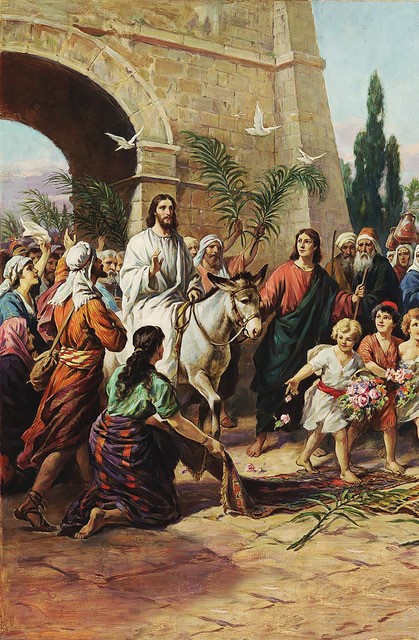
hosanna!
Sermon for the First Sunday in Advent: November 29, 2020 jj
Rev’d Mark B. Stirdivant, Good Shepherd Lutheran Church, Yucaipa, California
✝ sdg ✝
“Come, let us go up to the mountain of the Lord!” Picture ourselves there with the crowd welcoming Jesus on that first Palm Sunday in Jerusalem. Let us make our way in a pilgrimage of faith to Zion, one of the Bible’s many names for the Church who firmly believes and trusts in our Lord and Savior Jesus Christ. Advent has begun and you and I both know that with Thanksgiving now behind us, Christmas is in the air and this Christmas this year can’t seem to come soon enough! But first, while we still have an opportunity to give it our attention, we need to remind ourselves of this important fact: “Salvation is nearer to us now than when we first believed.”
Believe it, O Daughter of Zion! Awake from your sleep, O children of God! This is big news for you! What does it mean that salvation is nearer to you now? It’s not to say that you have to work to make yourself closer to being saved. It’s not that Jesus deceived you into thinking that you were saved, because His perfect and unbreakable promise remains: Whoever believes and is baptized will be saved. No, salvation is nearer to you now, means that the time is getting ever closer and closer to the Day when you will see the salvation that you already have. Faith will be replaced by sight. Trusting only in His Word will soon make room for you to experience that Word of God in utter fullness. Advent is just as much a reminder of Christ’s glorious return as it is a preparation for the celebration of His birth in long-ago Bethlehem.
This is why Advent begins with Palm Sunday. I’ll admit, it doesn’t sound like a very Christmas-y story, but I count as many as eight hymns in our hymnal’s Advent section that refer in some way to Palm Sunday. On the first Palm Sunday in the city of Jerusalem, the crowds gathered to greet the arriving Messiah. The golden setting sun was shining on the face of Jesus as He was riding on that donkey that had never been ridden before, meandering down into the shady valley as He got closer to the base of the high city wall. Then, as the road turns back up the steep hill toward the city gate the cheering crowd lined both sides of the dusty street, threw off their expensive outer garments, leaving on their plain- looking robes that they were wearing underneath. The people held palm branches in their hands, symbols of victory a little bit like the wreath of olive branches that the Greeks used to place with honor on the heads of Olympians and valiant soldiers.
The words of praise from their lips bounced off that imposing Jerusalem city wall: “Hosanna! Blessed be the Son of David! Peace in heaven and glory in the highest! Hosanna, blessed is He who comes in the name of the Lord.” The Prince of Peace entered the reputed City of Peace, fully aware of the Price of Peace, that for your forgiveness and mine to be a reality, His holy Blood must be shed and handed over. The exultant crowd of pilgrims and disciples will disperse and soon another crowd will assemble to shout in a mad rage, “Crucify Him!” As unlikely as it sounds, these events are exactly the way the Lord has chosen to raise up, in the words of Isaiah, the Mountain of the House of the Lord, namely, the Church, so that it will be the highest of all the mountains. How does Jesus execute justice as King of the Jews and thus acquire the name of “The Lord is our Righteousness,” foretold by Jeremiah? He must be lifted high on the cross. As our brand-new church year will unfold for us yet again, we will relive all those moments that make for our own story of Hosanna, of salvation.
But the Palm Sunday that you and I participate in today is not merely a reliving of a past event. It is so much more. “Come let us go up to the mountain of the Lord!” Our spiritual pilgrimage to Zion that we are walking in our hearts this morning is not meant for us to see Jesus die yet again, because that was done once and for all. Instead, we are called together today to receive the gifts earned for us in Christ’s death and resurrection, most especially the forgiveness of sins.
The night of your blindness to the wrongs you have done and the “rights” you have left undone—that night is far gone; the day is at hand. Your lack of love for your neighbor, your quarreling and jealousy, whether spoken or left in the darkness of your thoughts, must now be abandoned! Those who were there that first Palm Sunday took off their fancy overcoats. You instead on this First Sunday in Advent, take off all from this world that covers you, all that you use to make yourself impressive in the eyes of this world, and leave what remains underneath, a simple garment of repentance, a spiritual garment that Jesus has washed white with the forgiveness you received in your baptism.
Let the light of a new day, a fresh start, shine on your face with the blessing that comes with God’s face, His countenance that shines with favor upon you and gives you peace. Though there will be days when you must pass through a time of shadow, the road will be steep, and the walls will be imposing that seem to keep you outside of the borders of God’s love, you will keep the simple prayer “Hosanna” on your lips, for your King will truly save you when you call on Him. You will one Day hold the palm branch of victory, as John’s vision recorded in Revelation 7 shows—see, that’s you, you’re there somewhere in that massive crowd that he saw! That’s the Palm Sunday to end all Palm Sundays!
For now, as St. Paul instructs us, walk properly as in the daytime through this new church year and for the rest of the pilgrimage of your life in Christ. Put on the Lord Jesus Christ, feed your soul with pure spiritual food of all those fruits of love that are pleasing to God, and withdraw all provisions, starve out the sinful flesh that pesters you for self-gratification. You’ll find that it would be better to owe no one anything, other than to love them sincerely, since focusing just on earthly obligations will only distract you from what is truly most important in this spiritual pilgrimage that you are walking in faith this day until the final Day when you see Jesus with your own, resurrected eyes.
Prepare our hearts for Christmas? Yes, we will do that this Advent. Marvel in the prophets’ words over centuries coming true in the womb of the Virgin Mary? Most certainly we shall. But for now, “Come, let us go up to the mountain of the Lord!” Salvation is nearer now than when we first believed, so today let us take hold of that Salvation. Eat and drink that Body and Blood that has already paid the Price of your Peace. Rejoice and praise your true King who comes in the name of the Lord, for blessed is He, indeed!
Let us pray our Hosanna to the Son of David once again: Stir up your power, O Lord, and come to rescue us from the threatening perils of our sins, and save us by Your promised deliverance; for You now live and reign with the Father and the Holy Spirit, one God, now and forever. Amen.
In the Name of the Father and of the ✝ Son and of the Holy Spirit.

blue parament
Readings:
Jer. 23:5–8 The LORD our righteousness
Psalm 24 Who may ascend into the hill of the LORD?
Rom. 13:8–14 Owe no one anything except to love one another
Matt. 21:1–9 you will find a donkey tied
